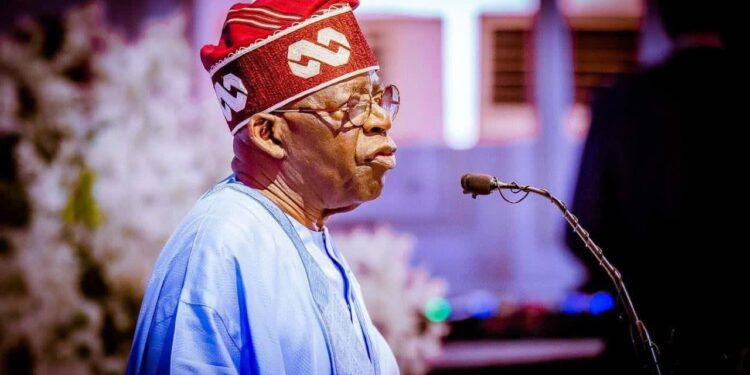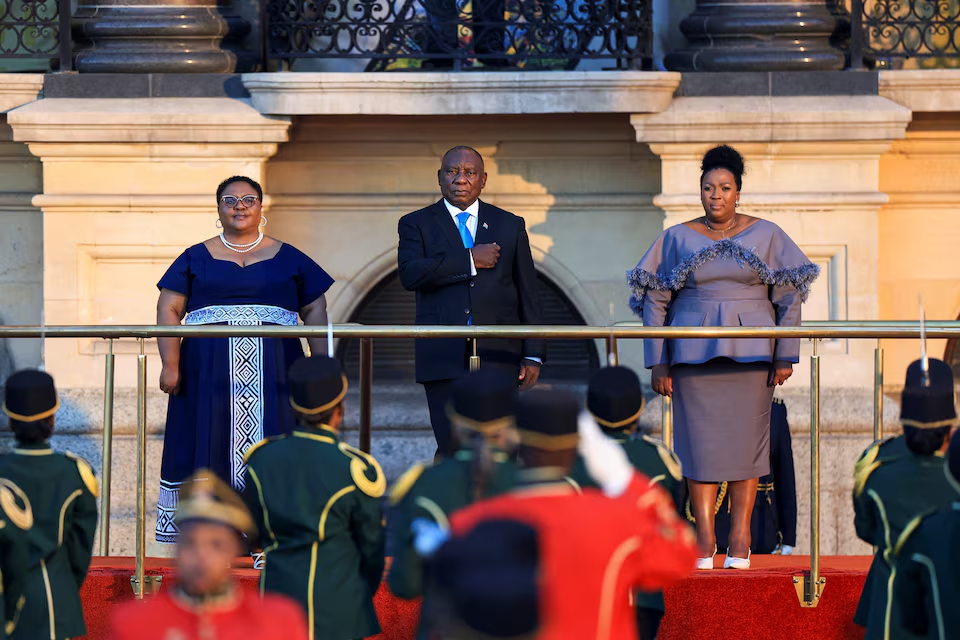President Bola Tinubu has reaffirmed his administration’s commitment to steering Nigeria towards stability and prosperity, declaring that the country is firmly on a growth trajectory as ongoing economic reforms continue to yield tangible results both nationally and internationally.
Speaking on Thursday at the Federal Executive Council (FEC) meeting in Abuja, shortly after swearing in two new ministers — Dr Bernard Mohammed Doro as Minister of Humanitarian Affairs and Poverty Reduction, and Dr Kingsley Tochukwu Udeh (SAN) as Minister of Innovation, Science and Technology — President Tinubu said Nigeria’s diplomatic engagements and reforms are paying off.
“The most important thing is that despite the political headwinds and fears of our people, we will continue to engage with partners,” Tinubu said. “The success of the $2.3 billion Eurobond that was oversubscribed by 400% is most assuring. The task ahead is immense; we are engaging the world diplomatically, and we will defeat terrorism in this country.
Our resolve is to move forward with unity and purpose, guided by the Renewed Hope Agenda to build a prosperous, inclusive and resilient Nigeria.”
On security, the President urged Nigerians not to lose hope, assuring that the government will not relent until every part of the country is secured.
“Do we have problems? Yes. Are we challenged by terrorism? Yes. But we will defeat terrorism. Nigeria is one happy family, and we shall spare no effort until we eliminate all criminals from our society,” Tinubu said. He also called on ministers and officials to maintain consistency in their communication and avoid sending mixed messages.
During the meeting, Tinubu directed the Minister of Finance and Coordinating Minister of the Economy, Wale Edun, to brief the Council on the country’s economic performance.
Presenting the report, Edun said Nigeria’s macroeconomic indicators reflected one of the strongest performances in the past decade, with clear signs of economic recovery.
“The reforms under your Renewed Hope Agenda, though bold and sometimes unpopular, are achieving their objective of building a competitive economy that attracts investment, creates jobs and lifts millions out of poverty,” Edun said.
He revealed that Nigeria’s Gross Domestic Product (GDP) grew by 4.23% in the second quarter of 2025 — the highest in ten years, excluding the post-COVID rebound. Thirteen sectors recorded growth above 7%, compared to nine in the previous quarter. The industrial sector nearly doubled its growth from 3.72% to 7.45%, reflecting increased productivity and investor confidence.
According to him, inflation has eased to 18.02% as of September 2025, while foreign reserves have risen to $43 billion and the trade surplus has reached N7.4 trillion.
“Our citizens now spend about half of their income on basic needs such as food, shelter and clothing, compared with nearly 90% previously. This signals a shift from subsistence towards productivity and, indeed, affluence,” the minister noted.
Edun further stated that Nigeria’s removal from the Financial Action Task Force (FATF) Grey List was a major milestone, enhancing the country’s financial integrity and investor confidence.
“At the recent World Bank and IMF annual meetings, global leaders commended our reforms and progress, with the IMF revising its growth forecast to nearly 4% and improving our credit ratings,” he said.
Edun added that achieving a $1 trillion economy by 2030 was feasible with consistent 7% annual growth and continued efforts to end poverty.
Highlighting the success of the government’s recent $2.35 billion Eurobond issuance, which attracted an order book of over $13 billion, Edun said it demonstrated investor faith in Nigeria’s economic fundamentals and President Tinubu’s leadership.
“Despite the political headwinds, the market focused on our economic fundamentals rather than politics. This confidence must now be matched with inclusivity,” he said.
He called on ministers in key sectors — including infrastructure, mining, education, health, agriculture, the blue economy, digital innovation, arts, and culture — to work with state governments in packaging viable, investment-ready projects.
“Every naira must be optimised to sustain momentum amid global liquidity constraints. With reduced multilateral funding, we must rely more on domestic resources. The next phase of reforms will focus on removing barriers to investment by reviewing tariffs and import restrictions to boost productivity,” Edun concluded.
The meeting underscored the administration’s dual focus on economic recovery and national security, as President Tinubu reaffirmed his government’s commitment to uniting the country and sustaining reforms under the Renewed Hope Agenda.









